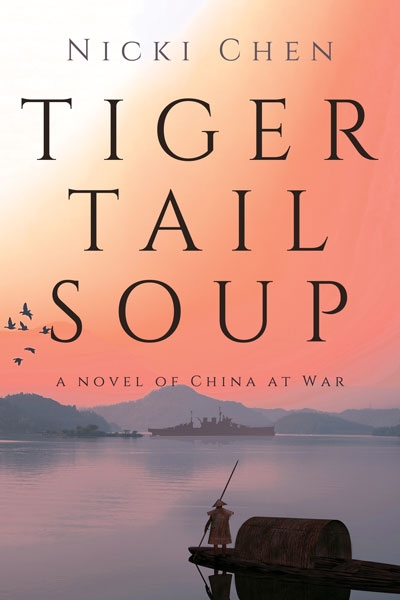When people ask how I met my late husband, sometimes I simply give the short answer: “We were introduced by my parish priest.”
But then, invariably, the questioner will look at me, waiting for something more, disappointment written all over his face. And I have to decide how far back I should go in explaining how two people born on opposite sides of the world were able to find each other.
My part of the story is easy. I was twenty-one years old, studying at Seattle University. When I came back to my parents’ house for the summer, Eugene had moved to my hometown. All that remained was for the priest to introduce us.
Eugene’s story is more complicated. He started out so much farther away that without his chopstick-wielding technique, a civil war, a crash course in English, “jungle rot,” and Maidenform bras, I might never have met him.
His chopstick-wielding technique.
 Some people grasp their chopsticks near the tips; others hold them in the middle. Eugene always held his farther back, near the thick ends. For a child born in China during the hungry years of war and occupation, being able to reach the food was a crucial skill. And holding his chopsticks farther back gave him the best reach to the serving dishes.
Some people grasp their chopsticks near the tips; others hold them in the middle. Eugene always held his farther back, near the thick ends. For a child born in China during the hungry years of war and occupation, being able to reach the food was a crucial skill. And holding his chopsticks farther back gave him the best reach to the serving dishes.
His mother didn’t see it that way. “If you continue holding your chopsticks so far back,” she scolded, “you’ll end up marrying someone far from home.” I guess she was right.
A civil war.
Eugene was born only months after the Japanese invaded his home in southeastern China. When the war ended in 1945, he was seven years old. But the end of one war only opened the way for the intensification of another.
After four more years of fighting, in 1949, the Communists had won the Chinese Civil War and Chiang Kai Shek’s forces were retreating to Taiwan, 150 miles across the Taiwan Strait from Eugene’s home in Xiamen. He and his family escaped while they could on a leaky fishing boat. Later, he spoke of seeing his mother rip pieces of cloth from her slip and stuff them in cracks and knotholes that were spouting sea water.
Taiwan was a few miles closer to me in the United States, but Eugene still had a long way to go.
A crash course in English.
 After a couple years in Taiwan, a new job opportunity took the family to Yokohama Japan. Eugene’s father looked at the local Chinese school and decided it was too closely allied with the Communist government on the Mainland. Instead, he chose a K-12 international boys school for Eugene: St. Joseph’s College. The only hitch: Eugene didn’t speak English, the language of instruction.
After a couple years in Taiwan, a new job opportunity took the family to Yokohama Japan. Eugene’s father looked at the local Chinese school and decided it was too closely allied with the Communist government on the Mainland. Instead, he chose a K-12 international boys school for Eugene: St. Joseph’s College. The only hitch: Eugene didn’t speak English, the language of instruction.
Fine. He still had five months before the entrance exam. His father hired a tutor, and though Eugene had a knack for picking up languages, five months wasn’t nearly enough to become proficient in a language so different from Chinese.
He failed the entrance exam, and while he continued studying for the next test, his father gave him the silent treatment. A few months later, he passed. When he graduated from St. Joseph College, his English was so much improved that he won the top English prize for grade twelve students.
 Still, he had many miles to travel before he arrived in my hometown of Sedro-Woolley, WA. Come back next week for the rest of the story.
Still, he had many miles to travel before he arrived in my hometown of Sedro-Woolley, WA. Come back next week for the rest of the story.





What a wonderful story! Your husband was just a little younger than my father, who was a tween during World War II and in high school during the Chinese Civil War.
Thanks, JC. Did your father leave China after the Chinese Civil War, or did he stay on?
My father was an anti-Nationalist and participated in a demonstration in high school (in Xiamen), in 1947. This was during the White Terror, and several of his friends started to disappear. He had an uncle, a government official, in Taiwan, so he fled, thinking that the Taiwan would be eventually be liberated. Of course, the Nationalists ended up fleeing there, so he jumped at the opportunity to go to college in the US.
He met my mother here, and ironically, her family were staunch supporters of the Nationalists. Her uncle was the personal attache to Madame Chiang Kai-Shek when she retired to Long Island.
That time during the White Terror must have been really difficult. My husband’s family were Nationalists. After 8 years of war against the Japanese and another 4 years of civil war, people had been through a lot, and they were hardened. The atmosphere, even for Nationalists, was difficult. My husband told of getting into trouble at school and being forced to kneel on an abacus in the heat of the sun as a punishment.
My novel, Tiger Tail Soup, is about the period of the Japanese invasion in Xiamen. Some people have asked if I’m going to continue the story. I don’t dare. That period after the Japanese War would be very hard to write about.
My father spent the war in him hometown of Changting, which is in the interior of Fujian, close to the Guangdong border. He had all kinds of horror stories of the Japanese invasion. It is so horrible to think that the Chinese people suffered 15 years of war against Japan, only to face the civil war not long after.
In any case, my family had an estate on an island in Xiamen, so the premise of your book struck close to home. I just ordered it on Amazon 🙂
Wow! I wonder if that estate was on Gulangyu, the setting for my novel. I’m glad you ordered my novel. I’d love to hear what you think about it.
Yes, it was Gulangyu! I couldn’t remember the name.
The chopstick holding superstition!
We also know it here!
😀
Nicki, I have always wondered how you wound up with the name Chen. Now I am learning. I can’t wait for the next chapter. God Bless, your friend and classmate. Dave
Dave, thanks for commenting, and also for subscribing. I have “the next chapter” ready to go on Sunday. There will be a couple more steps before I meet Eugene in Sedro-Woolley.
I enjoyed reading part one of how you met your husband and am looking forward to reading part 2. My in-laws used to joke that my husband should find a foreign wife because of his character. They (including my husband) probably didn’t think that one day their jokes would turn into reality.
I think you’re, right that your in-laws didn’t expect their jokes to come true, especially since so few Chinese men have foreign wives. There must be something about him that is just right for you–and vice versa.
Great post, Nicki!! I loved how your husband’s method of holding chopsticks may have made you both destined to be together. And it kind of ironic because my husband also holds his chopsticks in a manner that is not deemed as the norm. (so maybe there is some truth behind this theory).
Hope all is well, Nicki!!
It’s really funny how many Western women married to Asian men have said something similar. I wasn’t expecting that.
And yes, I’m doing fine. Thank you for asking.
What a great share, Nicki. Love how his chopstick-wielding technique brought the two of your together . . . after a few other hurdles.
Its a very interesting story. My wife also holds her chopsticks at the far end and heard the same story from her mother and grandmother more than once in her youth. Seems it is really true 😉
Wow! Your wife held her chopsticks on the far end, and now she’s in Germany–far, far from China. It’s stories like these that give the chopsticks story credence. I’m enjoying hearing that my mother-in-law wasn’t the only one who believed in the importance of how her children held their chopsticks.
I believe I will teach my son also to hold the chopsticks at the far end, perhaps he will find his luck also abroad 🙂
Love the chopsticks story, and doesn’t he look adorable in that car? 🙂
He does look adorable in that cute little car. I’m guessing it’s a photographer’s prop.
Romantic and intriguing…
See you next time for the sequel…
That’s the same thing my mother in law used to tell my husband about holding the chopsticks. She used to tell him to hold the chopsticks closer to the back o “he will finally marry a neighbour and not someone from far away”. She explained to me is also a way to say that her “wife” radio would be shorter 🙂
Same story!
Laura, thank you so much. I’m glad to hear that other people know about the chopsticks belief. I guess many mothers would prefer their children hold the chopsticks in the middle so they would marry someone who lives just the right distance away. The “Goldilocks” result.
It’s a great story, Nicki! Ours is not nearly so intriguing!!
You big tease! I was already for how Eugene made it to the United States… but guess I just have to wait. I found it very interesting about the Chop sticks…….
I have no idea whether the predictive power of where you hold your chopsticks is a widely held superstition or just something his mother made up.
Love the story and looking forward to more. I read Tiger Tail Soup and loved it. It left me wanting to know what happened next in the lives of the main characters. Any chance of more?
Thank you, Kate, for the Amazon review of Tiger Tail Soup. I’m glad you liked it. I’m not planning anything more, though, with these characters. I’ll have new characters and a new location for my next novel.
I’m ok with that too!